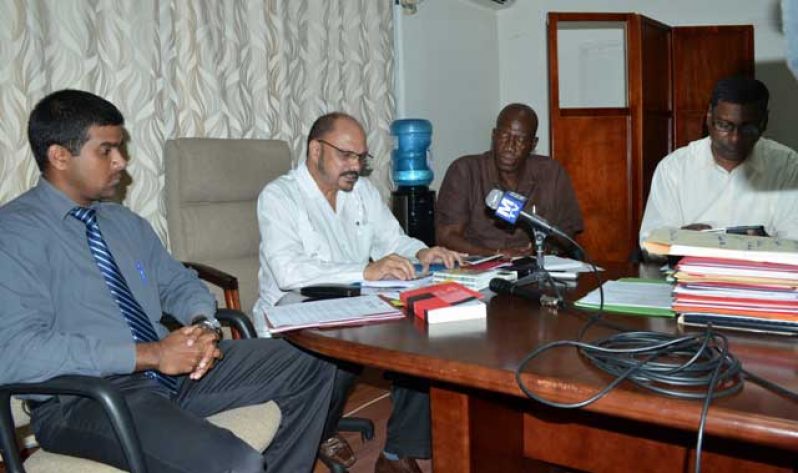– Health Ministry beefs up vector control
IN wake of the discovery of two confirmed cases of Chikungunya in the Canje, Berbice area, a medical team has been dispatched to the area and will be conducting fogging exercise over the next two weeks, according to Health Minister, Dr. Bheri Ramsaran.
The two cases, a toddler, and a woman said to be in her forties, are from Cumberland and Canefield, Canje in Region 6.
Minister Ramsaran made the disclosure during a press briefing he hosted on Tuesday, where he explained that the discovery was made last week after some 30 samples were sent to the Caribbean Public Health Agency in Trinidad for testing.
Dr. Ramsaran indicated that the Ministry of Health has decided to heighten their vector control exercise in the Berbice area.
In addition, he said the ministry has already identified all ports of entry for strict monitoring, as well as health centres have been alerted.
“Since last year, we have been quietly getting our work done by increasing fogging activities, public health awareness programmes, spraying, and at the same time education programmes to encourage citizens especially in densely populated areas to desist from degrading their environment which will create condition for breeding of mosquitoes.”
The minister said this will help in the fight against all types of vector borne diseases, including malaria and dengue.
“We have been following our data and we have been taking samples as is recommended by good public health practice and these samples are sent overseas for testing,” Dr Ramsaran said.
Meanwhile, the minister said all health facilities have readily available medication for the effective treatment of any vector borne disease. He added that the symptoms are similar to those associated with dengue fever.
Further, the fogging exercise that has been ongoing in the city for several weeks will continue and persons are advised to adhere to the warning during this exercise.
The ministry is encouraging citizens to appropriately discard tyres, unwanted containers, and to keep their surroundings clean so as to eliminate breeding grounds for the vector.
The most common symptoms of Chikungunya are fever and joint pain. Other symptoms may include headache, muscle pain, joint swelling, or rash. Outbreaks have occurred in countries in Africa, Asia, Europe, and the Indian and Pacific Oceans. In late 2013, the illness was found for the first time in the Caribbean, and now several countries have reported cases.
(GINA)



.jpg)









